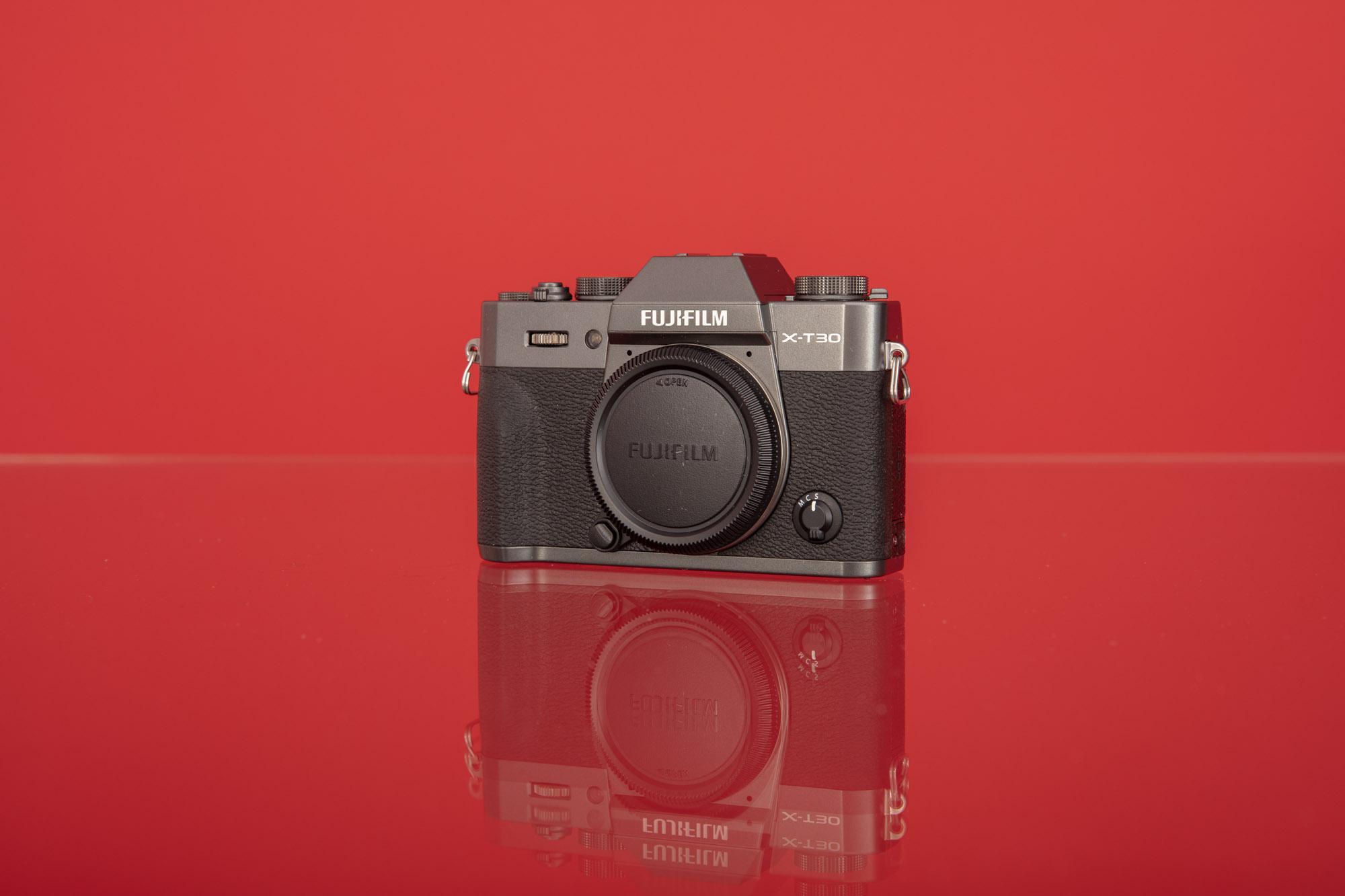
Review: Fujifilm X-T30 specs
Published 17 March 2025 by MPB
Fujifilm’s X-T lineup, which began in 2014, is a potent combination of DSLR-type controls in compact, mirrorless bodies. The 26.1-megapixel Fujifilm X-T30 model joined the Fujifilm mirrorless range in 2019.
The X-T range is aimed squarely at advanced enthusiast photographers, and the X-T30 model gives you a deep spec that includes a 26.1-megapixel X-Trans BSI-CMOS 4 APS-C format sensor, an X-Processor 4 and a hybrid autofocus system with an astonishing 425 phase-detect points spread across the frame. The Fujifilm X-T30 can shoot up to 30 frames per second and features a three-inch [7.62cm] tilting LCD touchscreen display.
The APS-C–format backside-illuminated sensor is a ‘trickle down’ spec from Fujifilm’s X-T3 model and offers great image quality with a crop factor of 1.5x. This crop factor means that if you were shooting with a 200mm telephoto lens on the camera it effectively gives you a focal length of 300mm compared to a full-frame camera. This gets you ‘closer’ to subjects and is a plus point for shooting sports or nature subjects. The ability to freeze fast action in your pictures is aided by a top shooting speed of 30 frames-per-second—but the caveat here is that speed is only possible with a 1.25x crop factor, or a still stunning 20fps at 1.5x crop.
The Fujifilm X-T30’s X-Trans sensor features an impressive colour filter array, which is designed to reduce moiré and false colours without the requirement of an optical low-pass filter. The benefit of this is highly accurate and pleasing colour reproduction combined with sharp reproduction of fine detail in images.
Dominating the rear of the camera is a three-inch [7.62cm], tilting LCD touchscreen with a 1.04m dot resolution. It’s not a fully-articulated screen, but it can still tilt up by around 90 degrees and down by around 45 degrees to help you to shoot at different angles. Via the LCD display, you can select the focus points, adjust settings from the customisable Quick Menu and choose movie settings via Movie Silent Control.
The camera’s hybrid autofocus system incorporates 425 points with phase-detect autofocus available across the frame. The phase-detect system is fast and can help to ensure that movement in a frame is focused on quickly and accurately. It also allows the camera’s sensor to assess the image’s depth-of-field and keep the main subject in focus while, if required, throwing out focus in the background. The autofocus system also offers face and eye detection abilities for better portraits and works in tandem with a 256-zone metering system to ensure subjects are accurately focused in changing light conditions.
The standard ISO range is 160-12,800, but this can be taken down to ISO 80 or pushed up to ISO 51,200. This means you can shoot in almost all light conditions while retaining fine details in your pictures with zero noise apparent to the naked eye. Continuous autofocus mode keeps shooting for action sequences—you can also choose from Single AF (best for subjects that don't move) or manual focus options.
The Fujifilm X-T30 is a stunning mirrorless camera. Many of the best mid-range cameras available are those that benefit from 'trickle-down' technologies from higher spec—and more expensive—models, and the X-T30 is one of these. It has inherited a lot from the Fujifilm X-T3 camera and delivers plenty for both stills and video, shooting UHD 4K at 30p and supporting F-Log and 10-bit 4:2:2 output. Overall, it's a tempting prospect if you’re considering a mirrorless camera system.
You can sell or trade your camera kit to MPB. Get a free instant quote, get free insured shipping to MPB and get paid within days.